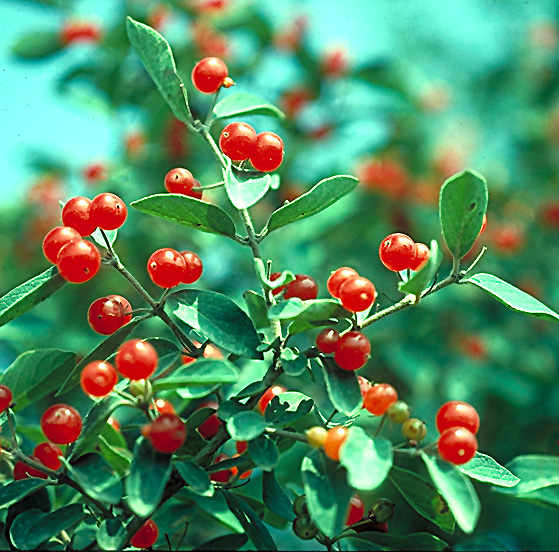Freedom Honeysuckle
Lonicera tatarica 'Freedom'
Height: 8 feet
Spread: 8 feet
Sunlight:
![]()
![]()
Hardiness Zone: 3b
Description:
A tall, upright and bushy shrub valued for its very showy light pink flowers in spring followed by bright red berries; can grow quite leggy and should be underplanted with lower-growing shrubs; resistant to aphid troubles that plague the species
Ornamental Features
Freedom Honeysuckle is blanketed in stunning shell pink flowers with yellow anthers along the branches in late spring. It features an abundance of magnificent red berries from mid to late summer. It has green deciduous foliage. The oval leaves do not develop any appreciable fall color.
Landscape Attributes
Freedom Honeysuckle is a dense multi-stemmed deciduous shrub with an upright spreading habit of growth. Its average texture blends into the landscape, but can be balanced by one or two finer or coarser trees or shrubs for an effective composition.
This shrub will require occasional maintenance and upkeep, and is best pruned in late winter once the threat of extreme cold has passed. It is a good choice for attracting butterflies and hummingbirds to your yard. It has no significant negative characteristics.
Freedom Honeysuckle is recommended for the following landscape applications;
- Mass Planting
- Hedges/Screening
- General Garden Use
Planting & Growing
Freedom Honeysuckle will grow to be about 8 feet tall at maturity, with a spread of 8 feet. It tends to be a little leggy, with a typical clearance of 3 feet from the ground, and is suitable for planting under power lines. It grows at a medium rate, and under ideal conditions can be expected to live for approximately 30 years.
This shrub does best in full sun to partial shade. It prefers to grow in average to moist conditions, and shouldn't be allowed to dry out. It is not particular as to soil type or pH. It is highly tolerant of urban pollution and will even thrive in inner city environments. This is a selected variety of a species not originally from North America.

